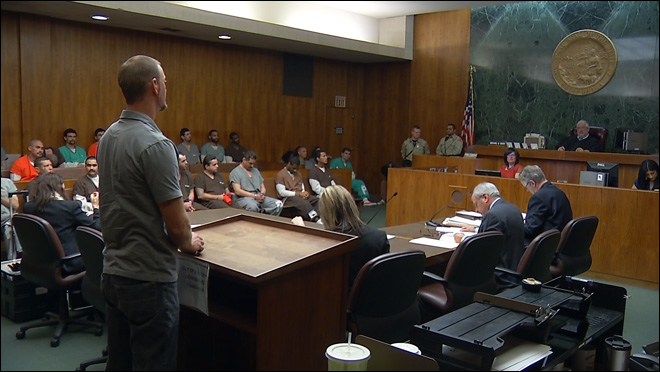In the US, 72 people were sentenced to death last year, and according to new research the faces of those tried in court may have had something to do with their sentence. An “alarming bias” in the criminal justice system, U of T researchers found, results from the prejudice attached to people’s appearance.
The researchers conducted two studies based on real world sentences, unlike past hypothetical experiments.
In the first study, they found that the trustworthiness of a person predicted whether they received death sentences. Two-hundred and eight American adults judged photos of the faces of 226 murder convicts on a trustworthiness scale of 1 to 8. The photos didn’t show that the faces were those of prison inmates. Of the faces of people convicted of first degree murder, some were sentenced to death and some were sentenced to life in prison — a less severe penalty. The faces of those who had received the lesser sentence were also the faces people perceived to be more trustworthy. The less trustworthy a face, the more likely the person behind it was to receive the death sentence.
Then in the second study, the researchers found that even for innocent people who had been exonerated after being falsely sentenced to death, the link of perceived trustworthiness and death sentence remained, demonstrating, the researchers concluded, that it wasn’t just that real criminals had meaner faces, but that anyone who had an untrustworthy-seeming face faced stiffer penalties.
The researchers surmised that the results show that people want to punish those who appear less trustworthy.
The researcher pointed to a lesson that could be learned from their study: since we know we are biased, we can police our thoughts to some degree.
The report, “Facial Trustworthiness Predicts Extreme Criminal-Sentencing Outcomes,” was completed by Drs. John Paul Wilson and Nicholas Rule of the University of Toronto and was funded by the Social Sciences and Humanities Research Council of Canada. It was published in Psychological Science.
The study material is publicly available.
